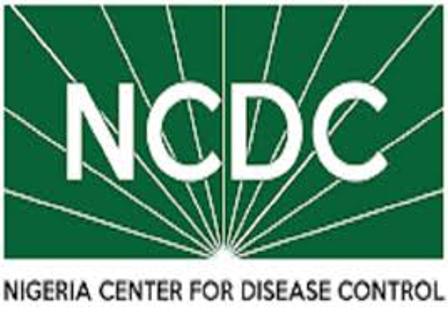… as NCDC issues Public Health Advisory

ABUJA – The Federal Government has raised the alarm over increasing reported vases of cholera in some states in the country.
A Public Health Advisory issued by the Centre for Disease Control (NCDC) today, Wednesday May 30, said there have been confirmed outbreaks of Cholera in 9 states of Adamawa, Bauchi, Borno, Kano, Plateau, Yobe, Nasarawa, Anambra and Zamfara States and warned of the risk to public health.
The Public Health Advisory, signed by Dr. Chikwe Ihekweazu, the NCDC Chief Executive Officer, urged members of the public to take appropriate precaution against the outbreak.
The Health Advisory also lamented the ongoing strike action by some health workers in the country which he said is affecting the provision of care in health facilities in many States.
The Advisory reads: “With the onset of the rains, there has been an increase in the number of Cholera cases reported in Nigeria in the last three weeks.
“Cholera is a disease that causes acute watery diarrhoea in children and adults and if left untreated can lead to death within hours. While cholera is endemic in Nigeria, there is an increase in the number of cases during the rainy season, usually between April and September.
“The primary reason for this is the contamination of drinking water supplies by excreta from infected people. The solution to preventing cholera is in providing potable drinking water.
“Cholera is caused by the bacterium Vibrio cholera, which is found in the stool of an infected person and spreads to other people when they consume contaminated food or water.
“Cholera transmission is more common in areas with overcrowding, poor sanitation and hygiene practices, lack of clean food and water, and areas where open defecation is common practice.
“Cholera is characterised by sudden onset of severe acute watery diarrhea, which can lead to death as a result of dehydration, if not managed on time. Other symptoms include nausea, vomiting, and weakness. Most people who have been infected may not show symptoms or have mild symptoms.
“Cholera is an easily treatable disease, if detected early. Most infected people people can be treated successfully through prompt administration of oral rehydration solution (ORS) and supportive treatment. To reduce the spread of Cholera, the NCDC advises that precautionary measures should be taken, and offers the following five priority actions to Nigerians:
* Ensure water is well boiled before drinking and bottled water is properly sealed. Store boiled water in a clean and safe container.
* Wash your hands frequently with soap and clean water. Use alcohol-based hand sanitizer if soap and water are not available.
* Ensure all food is well cooked before consumption. Avoid raw foods such as fruits and vegetables, except you have washed them in safe water or peeled them yourself.
* Avoid open defecation and indiscriminate refuse dumping and ensure proper disposal of waste and clearing of sewage.
* If you experience sudden watery diarrhoea, please visit a health care facility immediately and take all sick persons with the signs or symptoms above to a health care facility immediately.”
The NCDC also announced it has deployed Rapid Response Teams (RRTs) to some of the affected States.
“NCDC and its partners, especially the World Health Organisation (WHO), UNICEF and Medecin Sans Frontiers (MSF) will continue to support the response to cholera.
“We advise that there should be an increased focus on the provision of Water, Sanitation and Hygiene (WaSH).
“States are encouraged to ensure early reporting, adequate preparedness including provision of WaSH facilities, medical supplies, and institution of proper case management practices.”
